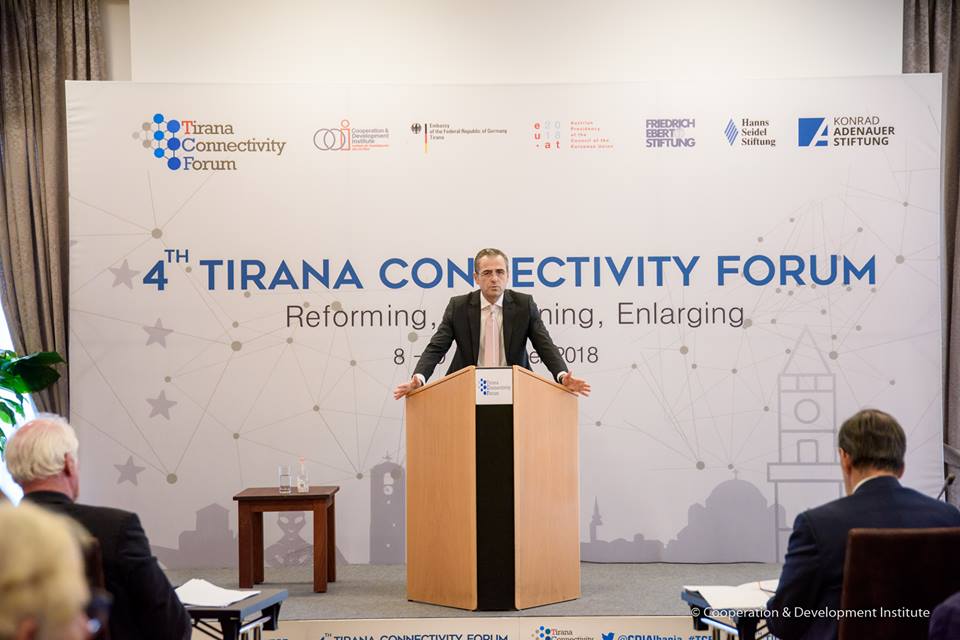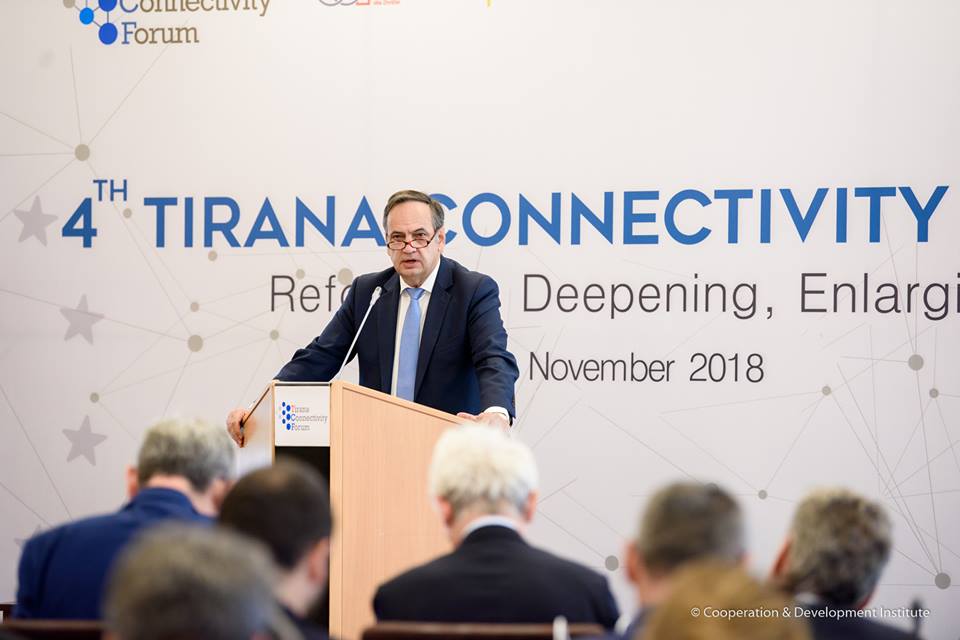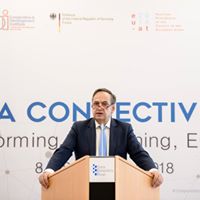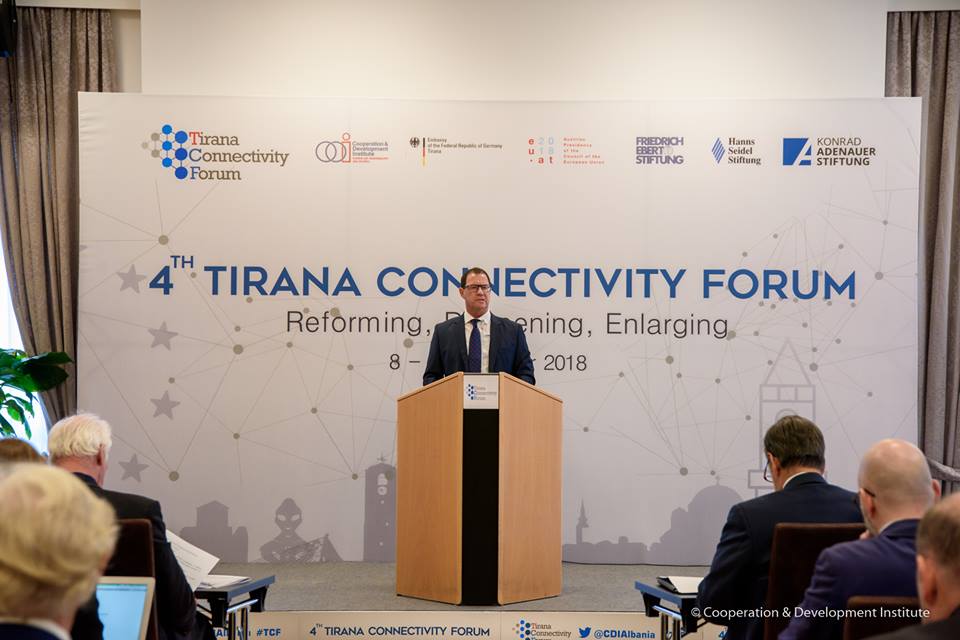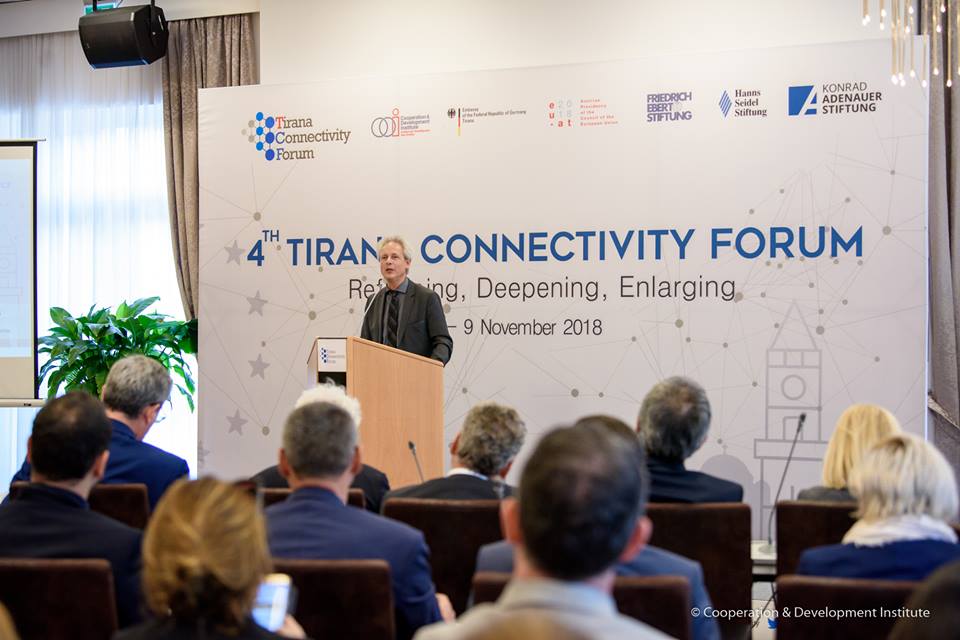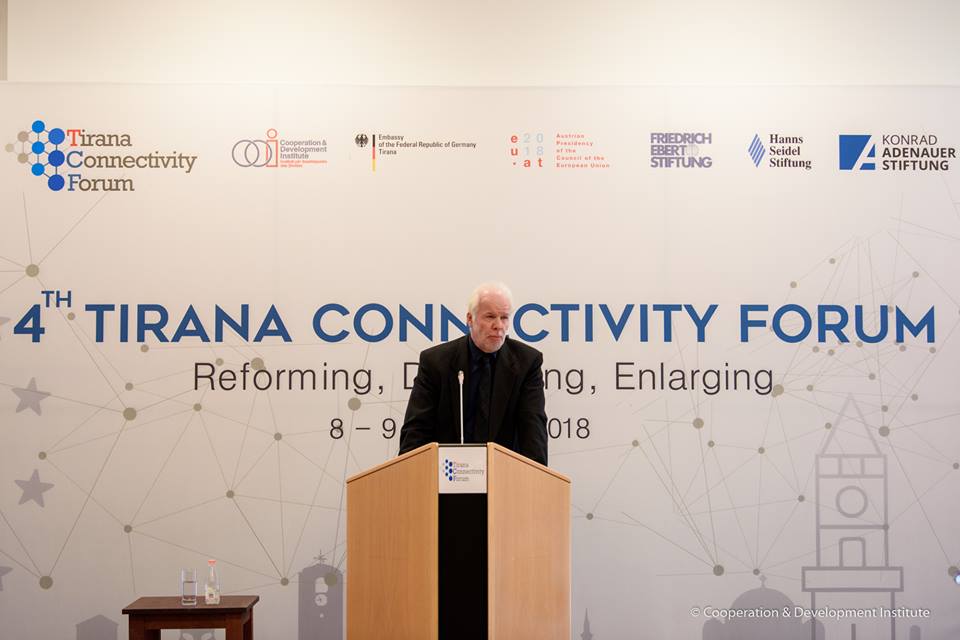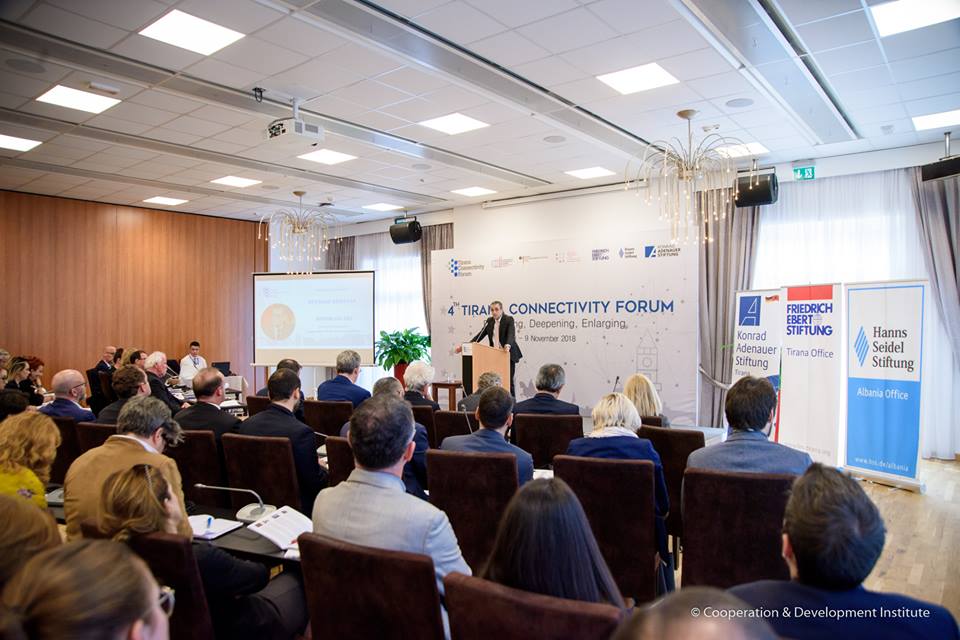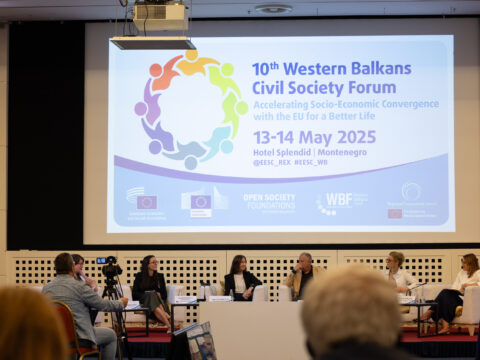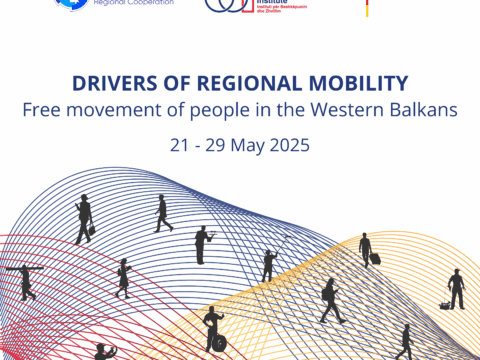This year’s event came under a new format and name to continue the tradition of our annual Conference in ‘Berlin Process Series’, organized by Cooperation and Development Institute – CDI and supported by Konrad Adenauer Stiftung – KAS, Friedrich Ebert Stiftung – FES, and Hanns Seidel Stiftung – HSS. TCF 2018 is part of the official Calendar of Events of the Austrian Presidency of EU and is organised in partnership with Austrian Embassy in Tirana and German Embassy in Albania as part of German October.
The Tirana Connectivity Forum (TCF) was held on November 8-9 and provided for in-depth analysis of the Berlin Process, Reforms in the EU and EU enlargement, while focusing on the benefits, best practices and challenges of connectivity projects in the Western Balkans 6.
The Forum was opened with the Welcome Address of Mr. Walter Glos – Head of Albanian Office of Konrad Adenauer Foundation who emphasized that “connectivity projects serve as a foundation for growth and movement of people”. Dr. Klaus Fiesinger, Regional Director for Southeastern Europe Hans-Seidel-Foundation, stated that “youth connectivity in the Western Balkans region is a strategic device for peace and development in fragile regions and a good example for effective cooperation”. Prof. Dr. Wulf Lapins, Head of Office of Friedrich Foundation Albania, presented the current European and regional geopolitical landscape in the energy sector by underlying the importance of the Western Balkans region in this landscape.
Mr. Ardian Hackaj, Director of Research in the Cooperation and Development Institute addressed the Forum with the Opening Address “Berlin Process Four Years On, or the Relevance of Being Well-Connected”. He stated that the Berlin Process has shifted the attention of policy-makers and of WB’s citizen into the investment needs of region’s transport and energy networks, and on their contribution to a higher growth rate. Mr. Hackaj emphasized that better connectivity contributes to higher economic growth and more jobs, increased global competitiveness and trade, and to the mobility of people, goods and services, whereas connectivity vectors convey knowledge, values, norms, standards and governance procedures. Better EU-WB6 connectivity – in infrastructure, people-to-people and institutional – multiplies the impact of EU transformative power, he concluded.
The Keynote Address to TCF was delivered by the Member of the European Parliament, Mr. Knut Fleckenstein. Fleckenstein stated that “we are already connected and we must do more to fully realize the potential of our connections”. He also emphasized that “to get rid of barriers to connectivity it takes political leadership and courage. We need a mutual commitment, first from all the leaders of the region, but also the EU and its Member States”. MEP Fleckenstein underlined that connectivity also serves to increase people-to-people contacts, particularly for the young generations. This is why – he continued – is imperative to provide for the needed reconciliation and a strong foundation of good neighborly relations. Mr. Fleckenstein concluded his intervention by he sees no alternative way for the Western Balkans than the EU membership.



